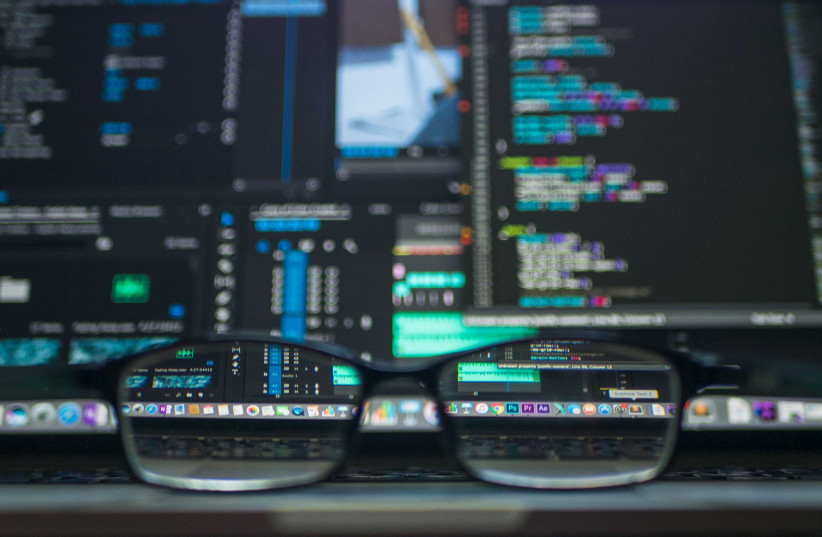In the digital era, the cyber arena faces financially motivated attacks, increased state-sponsored threats, and new challenges posed by artificial intelligence, making international cyberdefense collaboration crucial.
For more stories from The Media Line go to themedialine.org
Representatives from 25 countries gathered at Tel Aviv University on Monday for Cyber Week, a global cybersecurity event that brings together experts, industry leaders, investors, academics, and government officials.
“We must collaborate with like-minded states, share information, and cooperate to mitigate this risk,” Dadi Gertler, executive director of innovation and technology partnerships at the Israel National Cyber Directorate, told The Media Line. “We all have the same goal and face the same challenges. The next step is to enhance collaboration between governments.” According to Gertler, the presence of delegates from so many countries at Cyber Week
demonstrates the existing demand for better international cooperation.

Cyberattacks have two chief causes: financial and political gain
Wafa Nimri, general manager of Levant and head of Arabic marketing at the UK-based Protection Group International, said many countries face similar threats. “All nations are encountering similar threats in cybercrime, misinformation, disinformation, and ransomware, which affect the supply chain,” she told The Media Line. Nir Yaniv, chief business development officer & cyber operations at Code Blue, an Israeli company, told The Media Line that cyberattacks have two chief causes: financial and political gain.
Yaniv said state-sponsored attacks threaten both the private sector and government agencies. Sometimes, smaller private companies are more accessible to attack than government bureaucracies, which can benefit from more robust protections. “If the state mounts a strong defense, it’s easier to attack private companies, create economic
chaos, disturb markets, and hurt people,” Yaniv said.
David Polton, vice president of Global Sales at Nominet, a UK-based cybersecurity company, told The Media Line that his group had seen a marked increase in state-sponsored cyberattacks over the last few years.
“Certainly, with a lot of the international warfare that we’re seeing, I think you see a lot of change in how nations are targeting other nations, and the particular means they’re using to do so are certainly getting more sophisticated,” Polton added.
Uri Halperin, chief executive officer at ISTEC, an Israeli cybersecurity firm, and former head of national security in the Israeli Prime Minister’s Office, echoed these sentiments. Iran, he said, is one of the chief sources of state-sponsored attacks on Israel.
“Most of this is coming probably from Iran, although the Iranians have managed to camouflage some attacks as if they come from other countries,” Halperin said. “We know for sure that it’s Iranian retaliation to what they consider Israeli attacks against them.” The Technion—Israel Institute of Technology fell victim to one such attack just four months ago.
At first, Gertler said, the attack appeared motivated by a desire for financial gain. Further investigation, however, suggested it was a politically motivated Iranian attack.
“The first letter imitated a ransomware attack, asking for money. But when we investigated, we quickly realized that there was a state behind the attack,” and that state was Iran. Gertler believes the Technion attack aimed “to embarrass, obtain information, and harm the other party.” But in this instance, the target was “not the Technion, but rather the state of Israel.”
Gertler noted that Iranian-backed cyberattacks do not only target Israel. In July 2022, for example, a group attacked Albanian government websites. A later US investigation said the attackers were probably Iranian-backed, and that they targeted Albania because of its ties to Mujahideen E-Khalq, an Iranian opposition group.
Artificial intelligence (AI) is rapidly changing the nature of cyberattacks and defense. “Both attackers and defenders enjoy what AI has to offer,” said Gertler.
According to Polton, cyberattackers use AI to identify and exploit new vulnerabilities, making it harder for defenders “to keep up” as quickly as needed.
States and private companies must maximize collaboration to face these new challenges, Gertler said. Although balancing the need to share with the need to prevent data breaches can be challenging, “we don’t have a choice,” Gertler argued. “We must be open and collaborate, not just government to government, but within the private sector” as well.
